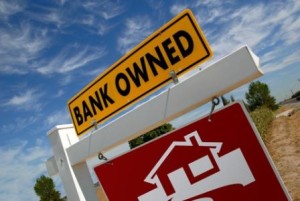 The decision to purchase bank-owned homes may seem to be a decent arrangement. These bank-owned properties, however, aren’t always in good condition. You may not be able to purchase it for much below the real estate market value. So, it’s crucial to get acquainted first with first time home buyer programs and the process of buying this type of home before jumping into it.
The decision to purchase bank-owned homes may seem to be a decent arrangement. These bank-owned properties, however, aren’t always in good condition. You may not be able to purchase it for much below the real estate market value. So, it’s crucial to get acquainted first with first time home buyer programs and the process of buying this type of home before jumping into it.
Real Estate-Owned and Foreclosure
Real estate-owned properties are properties that go back to a mortgage company if it hasn’t been traded at foreclosure auctions. Numerous foreclosure auctions don’t even get any bidding; auctions typically start with a minimum bid that includes the mortgage loan balance, accrued interest, attorney’s fees and other foreclosure expenses. In order to bid at these foreclosure auctions, you must have a bank check that comprises the full bid amount. For a successful bid, you get to acquire the property given in an ‘as is’ condition, meaning that any damages or property liens are still included in the sale.
It’s also unlikely for foreclosure auctions that will have a sale outcome as the amount the bank owed is almost always more than the property’s worth. Following the auction, if the property is still unsold, it’s returned to the bank. At this point, it becomes a ‘real estate-owned’ property.
How do banks auction real estate-owned properties?
Mortgage loans are written off if the property is returned to the bank. If necessary, the bank performs eviction of current property owners or tenants. The bank may also work with some of the needed repairs and hammer out the removal of IRS tax liens. From this, the bank will resolve any association amounts of the homeowners that are payable.
Banks all function in various ways, but their one aim is to vend the property at the best price possible. You will probably obtain a counter-offer from the bank once you negotiate a price offer.
Banks will provide higher pricing than your offer, but this is to demonstrate to investors, auditors and shareholders that they tried to acquire the best price. If you wish to pursue the property, you may have to counter again their counter-offer. Once your offer is accepted, you will still have to go through a clause stating that your offer will still be submitted for approval.
Before submitting to an offer, it’s advisable to ask your agents in order to learn more information from listing agents. You need to know if there are any repairs that the bank has agreed to improve and if there are any ‘as is’ forms unique to the property.
Remember that bank-owned properties are not often the bargain that they seem to be. Prior to bidding on these types of properties, ensure that the price you’re willing to shell out compares to that of the other properties in the specified area. Consider the amount you may have to spend on repairs and upgrades since properties like these are sold in their present, existing condition. Plus, take into account the time it will take to make all these home improvements, and if your efforts taken are worth your hours.
